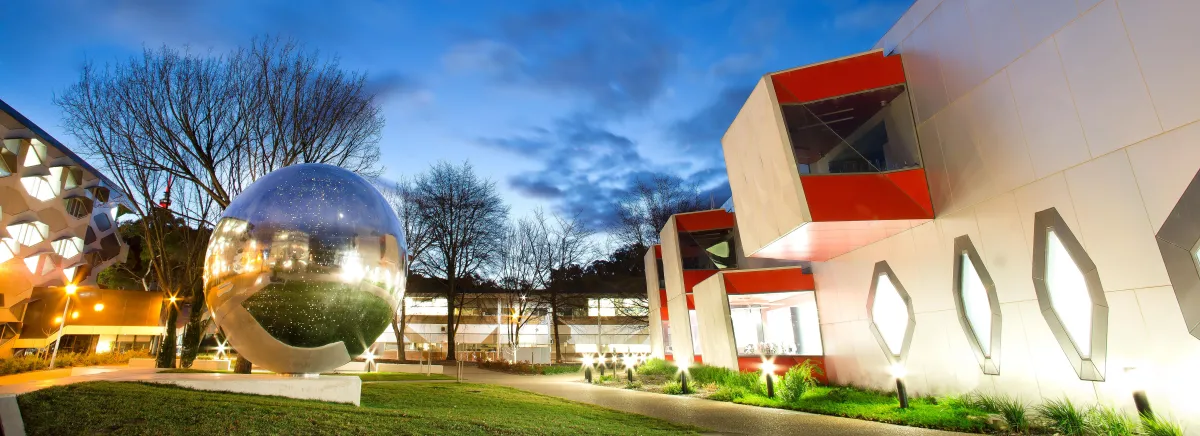
Overview
Learn from researchers working on the cutting edge of molecular biology, gene technology, biochemistry, genetics and cell biology, and equip yourself with the skills to tackle issues of global importance: food security, disease, and climate change.
The Master of Biotechnology includes a broad range of specialist subjects allowing you to tailor the program to suit your interests. You will develop your skills in advanced research techniques, while studying courses from across biology, medical research, chemistry, neuroscience, and science communication.
You'll also have access to our state-of-the-art facilities including the Australian Plant Phenomics Facility, the Controlled Environment Facility, the Centre for Advanced Microscopy, the Joint Mass Spectrometry Facility, and the Biomolecular Resource Facility which offers next-generation DNA sequencing.
Advanced program
The Master of Biotechnology (Advanced) incorporates a research project of your choosing, supervised by one of our leading academics, and is a gateway to further research, such as a PhD.
Key facts
- #1 for Natural Sciences (QS 2024) in Australia
- 2 years full time
- Semester 1 & 2 intake
- Advanced option available
- Access to state-of-the-art facilities
- #1 in Australia for graduate employability (Times Higher Education)
Testimonials

Archica Gupta
"I was thrilled when I read the program structure for the Master of Biotechnology (Advanced) as it had coursework followed by a dedicated year for research. The coursework provided me with a lot of background knowledge and research presentation skills, and my lecturers were super helpful! The following research year was exciting and challenging. I joined a lab at the John Curtin School of Medical Research, and I got to develop a research question and design my experiments. Now I'm pursuing my PhD in the same lab!”

Mihir Vardhan Singh
"I have always dreamt of working with the micro- and nanoscale world whose manipulations could contribute towards mankind. So I decided to pursue a Master of Biotechnology at ANU: the University has top-notch educational resources and exposure to the leading scientists in the world. This degree gives me insight into the real scientific world and challenges me to think and communicate like a scientist, which fascinates me enormously and drives me to continue learning."
Careers
Biotechnology is a growth industry with breakthroughs such as gene-editing and mRNA vaccines set to make a large impact on society, and our skilled graduates are in high demand. A Master of Biotechnology from ANU can launch your career as a biologist, research scientist, bioanalytical chemist, plant breeder, clinical researcher, laboratory scientist, and research development officer. The Master of Biotechnology (Advanced) is a gateway to a career in academic research.
The Australian National University has been ranked as the top university for graduate employability in Australia in the Global University Employability Ranking 2023-24. As a student at ANU, you gain access to the ANU CareerHub – an online career development and employability tool that includes a jobs board and careers resources. You also have access to drop-in chats with a career consultant and to attend our career fairs to meet potential employers.
Below are some of the career outcomes of our alumni, highlighting the diverse paths they've taken since graduating from the Master of Biotechnology*.
- DNA Extraction Team Leader at Diversity Arrays Technology (DArT)
- Laboratory Technician GR1 YR2 at the Peter MacCallum Cancer Centre
- Postdoctoral Researcher at the University of Copenhagen
*Based on data from LinkedIn.
Learning experience
Fees & scholarships
Fees
Please visit the Programs and Courses website for information about fees.
View fees View fees for advanced programScholarships
Whether you are looking for financial support to start your studies at ANU or help to move away from home for the first time, we have scholarship opportunities for you and your situation.
Convenors

Associate Professor Anthony Millar

Tony teaches and researches in the areas of plant physiology and biology, genetics, biochemistry and cell biology. The principal interest of his research lab is gene silencing mediated by microRNAs, with a focus on microRNAs that control plant disease resistance. He is Deputy Director of the ARC Training Centre of Future Crops.
How to apply
Understand the how to apply steps
Visit the international postgraduate applications page to prepare for your application to ANU.
International postgraduate applicationsUnderstand the how to apply steps
Visit the domestic postgraduate applications page to prepare for your application to ANU.
Domestic postgraduate applications




